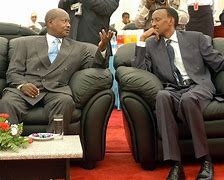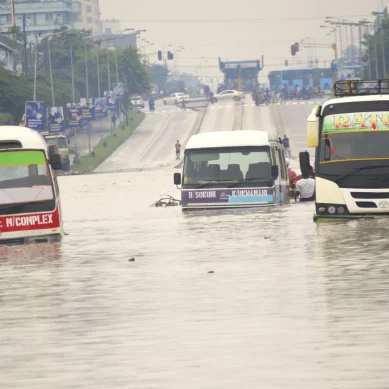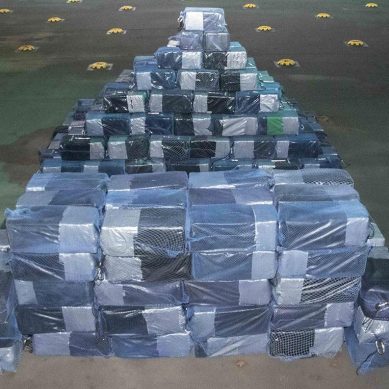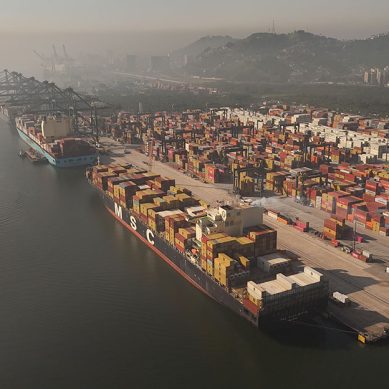
In 2009, the Uganda Citizenship and Immigration Control Act was amended to put it in line with the constitutional provision on Banyarwanda Tutsi.
Section 12 provides for citizenship by birth for any person born in Uganda whose parents or grandparents are or were a member of any of the indigenous communities existing in and residing within the borders of Uganda as at the first day of February 1926, as set out in the Third Schedule to the 1995 constitution.
It went ahead to stipulate that every person born in or outside Uganda one of whose parents or grandparents was at the time of birth of that person a citizen of Uganda by birth, is eligible for citizenship. Section 14 (1) (a) (ii) eliminates Hutu refugees from accessing citizenship thus: “Every person born in Uganda who at the time of birth neither of his or her parents and none of his grandparents was a refugee in Uganda”.
Since it’s now the Hutu who are refugees, the provision bars them. Section 14 (b) grants citizenship to anyone who has continuously lived in Uganda since October 9, 1962. Interestingly, the Act under Section 14 (2) (b) gives a blank cheque to Banyarwanda Tutsi who are always on the move migrating to and settling in Uganda thus “any person who has legally and voluntarily migrated to Uganda and has been living in Uganda for at least 20 years is eligible for citizenship.” The other requirements include a good command of the English language or “prescribed local language.”
In July 2010, Ugandan President Yoweri Museveni regime in connivance with President Paul Kagame regime in Kigali forcefully returned to Rwanda 1,700 Hutu asylum seeker and refugees to Rwanda. The victims have escaped Gacaca community courts, land wrangles and general repression.
The UPC government was accused of forcefully returning Tutsi refugees to Rwanda in the early 1980s but in the instance, it seemed okay because the victims were Hutu. In 2010, a group of Banyarwanda refugees in Uganda petitioned the Constitutional Court over acquisition of citizenship. They claimed that the Immigration Department had declined to give them citizenship application forms on grounds that they were not eligible on account of their being refugees. They based their petition on a constitutional provision that made refugees eligible for citizenship by naturalisation and registration.
Article 12 (2) (c) and 14 (2) (c) provides that “a person who on commencement of this constitution has lived in Uganda for the past 20 years is eligible for citizenship by registration.” The petitioners had lived in Uganda since 1985. In October 2015 court ruled that refugees were eligible for citizenship not by registration but naturalisation but two of the petitioners had already been relocated to the USA by UNHCR, while the third could not be traced.
The 2013 land policy condemns those who classify “cross-border population movement as refugees or internally displaced people because of shared common heritage and culture.” With Museveni’s treacherous populist refugee policy, what can stop Rwandans faced with land shortage back in Rwanda from coming to Uganda and claiming to be refugees from Burundi or Banyamulenge of Congo?
In 2012 the government set up a committee to discuss naturalisation for refugees especially Rwandese and Congolese of 1990s and 1960s lot respectively. The director of refugee affairs stated that at least 5,000 refugees had applied for naturalisation. In January 2015, the Ministry of Internal Affairs ran a countrywide awareness campaign to enable any non-citizens that met the conditions stipulated under Section 14 of the Uganda Citizenship and immigration Control Act to become citizens. The minister made it clear that refugees were not eligible to apply. In both instances, nothing concrete was arrived at and the scheme was simply abandoned.
In 2012, Museveni and Kagame met members of the Banyarwanda community in Uganda (UMUBANO) at State House in Kampala. They were feuding over leadership with one faction that recognised Donant Kananura while another one recognised Dr Eric Kyamuhangire who also doubles as a senior presidential advisor on culture. The Kananura group was accused of extorting money from Kagame under the guise of assisting Banyarwanda in Uganda. Museveni promised to mediate in resolving the leadership wrangles. On his part, Kagame advised the Banyarwanda not to focus on those small issues of leadership but work for the development of the two countries.
In 2013 Tanzania expelled Rwandese who were illegally staying in Kagera region back to Rwanda. Thousands of them chose to come to Uganda where the Museveni regime accorded them VIP reception, free land and citizenship. The chairman of the Banyarwanda in Uganda who is also a presidential advisor on culture, Dr Eric Kyamuhangire wrote a long letter in the New Vision condemning Tanzania’s action. He argued that the people expelled were Banyarwanda who had migrated there in the 1970s and 80s in search of pasture and were therefore both Ugandans and Tanzanians because that region is suitable for cattle grazing.
The expulsion also fermented serious friction between Museveni and Kagame on one hand and Tanzania’s Jakaya Kikwete. Kyamuhangire’s argument confirms the belief by some people that the so-called cattle corridor is for their exclusive occupation. How come they couldn’t trace their previous homes if they were Ugandans? In July 2015 Museveni paid a visit to a one Johnson Nyinondi in Tanzania’s Kagera region whom he described as his relative who had helped a lot in intelligence gathering and recruitment of fighters against the Idi Amin regime.
In April 2016, the then Minister of Internal Affairs Rose Akol visited Mirama Hill border post on Uganda-Rwanda border. She ordered Rwandan nationals in Uganda who were holding both Ugandan and Rwandese national IDs to surrender one. During the same occasion the DPC Ntungamo and immigration officers disclosed that the irregularity was making it difficult to fight cross-border crime. Immigration officers further revealed that they were confiscating an average of 10 Ugandan IDs per day from Rwandan travellers.
Given the porous border, it is obvious that many more Uganda ID card holders move freely to and from the two countries. During the 2016 general election in Uganda, the opposition decried that the Museveni regime had been issuing national IDs to Rwandans in order to enable them to vote for him. The minister’s stand did not go well with the regime agenda and she was not only relieved of her ministerial position but made to lose in the parliamentary elections. It’s no wonder that even the Uganda national ID is institutionally baptised “INDANGAMUNTU” – a Kinyarwanda word for Rwandan national ID.
In the last Rwandan general elections, the Rwandan High Commissioner to Uganda called upon Rwandans residing in Uganda to get ready to cast their vote at the embassy. He disclosed that there are 55,000 Rwandans in the diaspora, out of which about 6,000 live in Uganda.
From the above long narration, it can be authoritatively argued that the so-called Banyarwanda include all the Rwandans who find themselves in Uganda including the Rwandese embassy staff. The spirit of the constitution was manipulated to cover up for a wider scheme for Tutsi domination of Uganda. The recognition of Banyarwanda as one of the indigenous communities of Uganda was not meant for the migrant Banyarwanda who came to Uganda at the beginning of the last century.
Moreover, this category had already integrated into the local Ugandan society and those from Kisoro district who were made part of Uganda by colonialists have their own identity as Bafumbira. Therefore, the Banyarwanda of Uganda are the former Tutsi refugees of 1960s and 70s and the Tutsi immigrants both of whom have found two homes in both Uganda and Rwanda. They are bent on systematically achieving dominance and have the political and financial muscle to achieve this.
Under the guise of commercial farming, Museveni’s scheme is to deprive people of their land and hoard them into urban centres so that they lose their respective community identities to the advantage of Banyarwanda. That is the price of the false so-called national unity and regional integration.
- A Tell report / By The Conscious Ugandans











